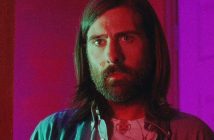
Editor’s Note: The Sunshine Makers opens in limited theatrical release tomorrow, January 19, 2017.
“We thought LSD was going to change the world,” declares Nicholas Sand in The Sunshine Makers, Cosmo Feilding Mellen’s nostalgic documentary on LSD culture and manufacture in the 1960s. Sand, along with sometimes partner in crime Tim Scully, produced LSD by the literal truckload in the hopes of bringing about world piece, and were arguably the two people most responsible for the ascent of the LSD counterculture. Their most famous creation, known as Orange Sunshine, was shipped all across the world, while Sand and Scully were eventually shipped off to jail.
There is a lot of affection in The Sunshine Makers for the producers, dealers and users of LSD, but there is also a healthy dollop of good-natured skepticism for both the progressive hippies and the conservative representatives of The Man.
Sunshine Makers is packed full of history, great music, and a surprising amount of archival footage of Scully, Sand and their cohorts as they made Orange Sunshine and other varieties of LSD. These little barrel-shaped pills were made in exactly the way you’d expect them to be: by people who often had no background in chemistry getting high on fumes and trying to follow instructions scribbled on notebook paper. Apparently the only real chemist involved was Tim Scully, a bespectacled, tech-savvy peacenik and the temperamental opposite of Sand, and who worked with the legendary Owsley Stanley prior to the Orange Sunshine days. Stanley makes archival appearances, as does rich psychedelic enthusiast Billy Hitchcock, still alive but a snitch turned business mogul who clearly had no interest in reliving his spiritual past. Also interviewed are two of Sand’s longtime friends, Alice Einhorn and Jill Henry, who both prove to be the most sensible of the group by far; no one ever makes a documentary about the people who have made a series of sensible decisions, but Einhorn and Henry make you wish they did.
 There is a lot of affection in The Sunshine Makers for the producers, dealers and users of LSD, but there is also a healthy dollop of good-natured skepticism for both the progressive hippies and the conservative representatives of The Man. “I think we did a better job than Jesus,” crows the former leader of the Brotherhood of Eternal Love, certain that his tune in, turn on, drop out lifestyle is the answer to all of humanity’s ills. Meanwhile, cops and politicians pontificate at length about LSD’s lasting harm to society — they curiously offer up no tangible examples — and LSD’s contribution to the “degradation of mankind.”
There is a lot of affection in The Sunshine Makers for the producers, dealers and users of LSD, but there is also a healthy dollop of good-natured skepticism for both the progressive hippies and the conservative representatives of The Man. “I think we did a better job than Jesus,” crows the former leader of the Brotherhood of Eternal Love, certain that his tune in, turn on, drop out lifestyle is the answer to all of humanity’s ills. Meanwhile, cops and politicians pontificate at length about LSD’s lasting harm to society — they curiously offer up no tangible examples — and LSD’s contribution to the “degradation of mankind.”
What makes The Sunshine Makers special is that the film doesn’t sugarcoat the inconsistencies, but also doesn’t spin them to a particular narrative, either.
The Sunshine Makers knows that both these positions are about half full of shit, and it also knows that that’s okay. There’s a frustrating but understandable mix of naïveté, selfishness, optimism and greed in everybody’s reasoning, and even the best of intentions, like Nick Sand’s goal of worldwide peace, are inextricably tangled up in Sand’s unrepentant hedonism; he’s the kind of guy who sounds enlightened and progressive until he mentions needing to take a woman along with him on a trip to “balance my energy,” as though a woman is a tool, the equivalent of a package of 9-volt batteries.
What makes The Sunshine Makers special is that the film doesn’t sugarcoat the inconsistencies, but also doesn’t spin them to a particular narrative, either. If we as a society learned anything from the hippie and psychedelic movements, it’s that good intentions will always coexist with personal weaknesses, no matter what side of the countercultural divide you’re on. Sunshine Makers reminds us that peace is a worthy goal, but everyone is human, mistakes will be made, and it’s up to us to make any judgments, if judgment is even necessary.
The Sunshine Makers is a documentary with a great sense of both history and humanity, exploring a time in our history when a small group of psychedelic enthusiasts thought world peace could be achieved, one orange pill at a time.



